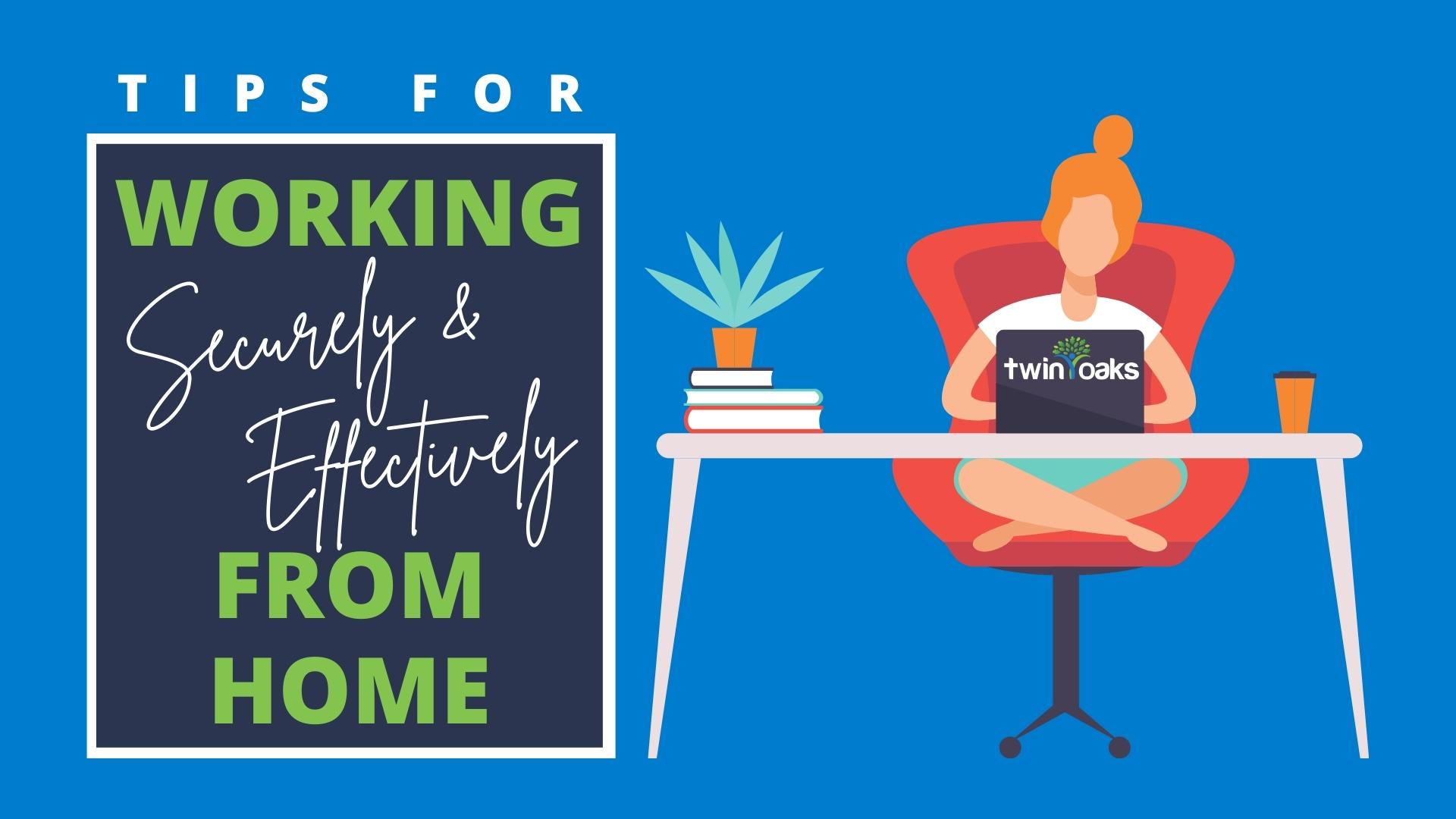Working from home and the hybrid work style has become a new normal for many of us. While it can be convenient, it does have setbacks. We’ve compiled a list of 8 smart tips to help make work more effective and secure on the days when you’re working remotely.
Our tips will include:
- Set Your Boundaries
- Start the Day with a Clean House
- Invest in the Upgrade
- When Done, Just Log Out
- Restart Your Engines
- Wise Up to Attacks
- Back It On Up
- Set Up a Support Backup Plan
Let’s go!
1.] Set Your Boundaries
It’s important to set clear boundaries between your work day and your family life. One essential way to to do this is to not allow any family members to use your work computer. From leisurely online activities such as shopping or surfing the web, your work computer has an increased chance of being at risk or compromised. Setup a unique PIN number to login and don’t share it with your family members. If your work computer is the same as your family computer, create an alternate profile for your family members to use.
2.] Start the Day with a ‘Clean House’
Just like a vehicle, our computers need regular maintenance. General housekeeping tasks for your computer include getting rid of files or programs that you don’t need or use, keeping your antivirus and firewall are up-to-date, and occasionally running the disk cleanup utility tool. Update your software regularly and restart your computer often. Make sure that the entire computer, especially the cooling fans located on the back of our computer tower, are clean and free from debris.
3.] Invest in the Upgrade
So often, we choose to settle for poor quality because we don’t want to fork over the costs of an upgrade. Over time, whether we’d like to admit it or not, our performance or the quality of our output, will be affected. If we want to do our best, we need high-quality tools. No more putting it off. Buy the larger computer monitor or the additional monitor. Invest in the larger desk or the standup desk you’ve always wanted. Upgrade to the better wi-fi speed. Purchase the better microphone and ring light. Buy those noise canceling, better quality headphones that you know would make work easier. Stop wishing and just get that new desk chair! Your work tools will help increase your efficiency, help you work better, and help you feel better about your work. The investment will be more than well worth it.
4.] When Done, Just Log Out
It is convenient to stay logged in after a long day’s work. It’s pretty important to log out when you are done at the end of the day. Remember that if it’s open, it’s wide open – for attackers and any roaming around in search of networks that aren’t secure.
5.] Restart Your Engine
How many times have you had technical difficulties right before an important virtual meeting? Restart your laptop or PC prior to your virtual conference or video meeting. Whether you are using one or multiple applications like Zoom, Microsoft Teams, GoToMeeting, or others: a fresh start will ensure that the applications you aren’t using are closed and optimizes overall performance.
6.] Wise Up To Attacks
None of us want to think about our computer being at risk. That said, it is critical that we remember that phishing is real and anyone using a computer has a responsibility to get educated. Today’s phishing attempts are realistic and sophisticated. Attackers’ creations are so seemingly legitimate that everyone must be on constant guard. Learn all you can about phishing and best methods for prevention. Always check the sender’s email address carefully. Don’t open attachments unless they are expected. If you know the individual who is sending you the email, always be mindful of red flags. Is the wording or tone of the email different than usual? Is the individual asking you to do something that’s out of the normal – such as making a purchase or sending money? Trust your gut instincts. If it seems suspicious, it probably is. Pick up the phone and call the individual to verify that the email you received is legitimate.
7.] Back It On Up
Cybersecurity risks have increased with new potential threats on the rise. Make regular backups of your desktop files and data to ensure that you have a backup plan, pun fully intended, in case you are compromised. Taking the time to backup your data every day is inconvenient, but you can rest assured knowing that your data is safely backed up.
8.] Set Up A Support Backup Plan
Asking for help doesn’t have to be the last resort, or a result of something terrible happening to your hardware or system. Set up a support system and action plan, and identify who to call when issues pop up. When things do occur, you’ll only have to implement your plan. Things are bound to happen from time to time, but having a plan in place will save you time and stress.




